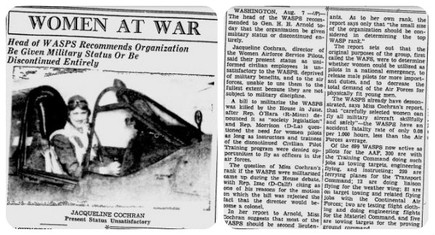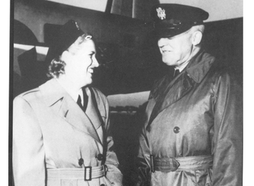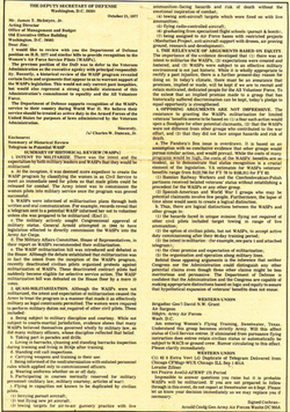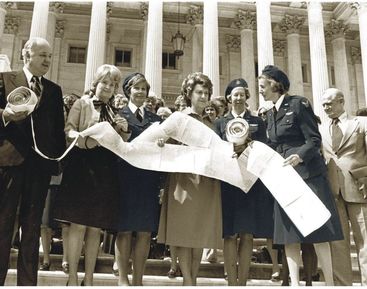Photograph above: Cochran and Arnold, Courtesy of Liberty Letters
Fight for militarization of wasps
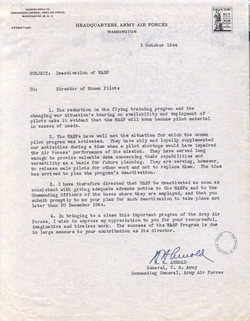 Courtesy of Eisenhower Presidential Library
Courtesy of Eisenhower Presidential Library
In Arnold's letter of 1944, the WASPs were deactivated without being granted militarization.
After deactivation, they continued to attempt to pass a bill to make them official members of the military in June 1944 so they could receive pension and benefits. Unfortunately, it was considered a "loud and ugly" (NPR.org) vote campaign.
In 1976, it was announced that, in referencing another group of female pilots, "this is the first time ever the Air Force has accepted women as pilots" (NPR.org). The WASPs felt cheated because they had, in fact, been the first women, so their urge for acknowledgement strengthened.
|
In 1977, an article was released about the injustices of the 1944 veto saying, "The resistance to granting the WASPs militarization for limited veterans' benefits seems to be based on (1) a fear such action would open a floodgate for other potential claimants, (2) that the WASPs were not different from other groups who contributed to the war effort, and (3) that they did not face unique hazards and risk of death" (The Deputy Secretary of Defense- Wings Across America.org). The women were getting closer to their goal as awareness rose. |
|
The WASPs can testify that Cochran diligently fought for their recognition: "She continued with her many achievements, such as being the first woman to break the sound barrier. She kept in touch with the WASP attending some of our many reunions. In the 1970’s she provided Col. Bruce Arnold and the WASP who were fighting the battle for recognition as Veterans with many details including her final report. I was the president of the WASP organization at that time and can vouch for the fact that she helped in any way she could. She never deserted the WASP" (Interview with WASP Bee Haydu).
"Cochran kept a fairly low public profile during the consideration of the bill to militarize the WASPs. She worked tirelessly in the background... She knew General Hap Arnold would testify on their behalf. And that should have been all that was necessary" (Interview with Nancy Parrish-WASP Specialist). |
